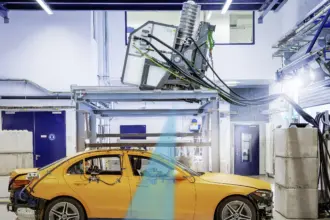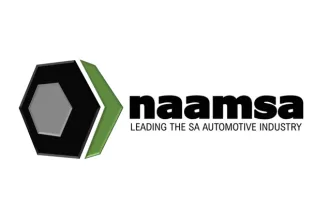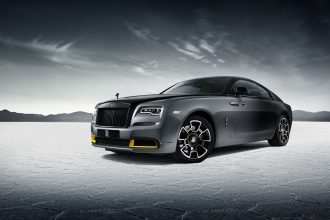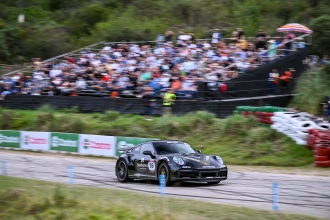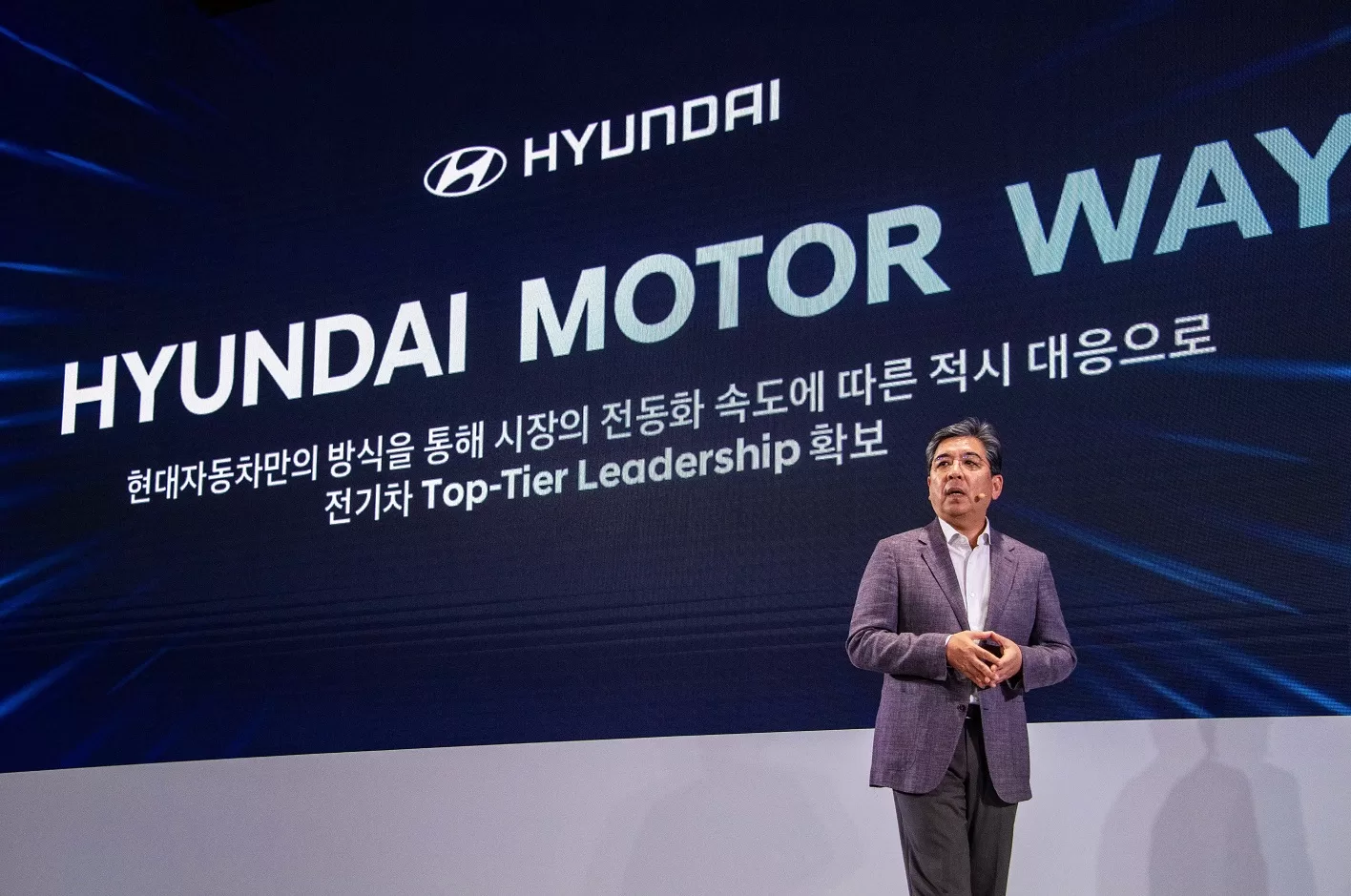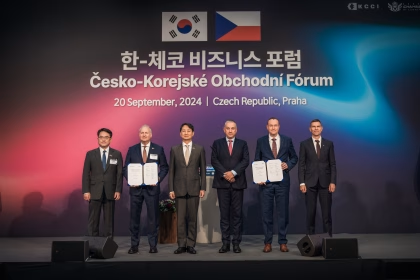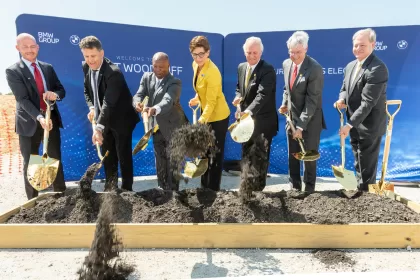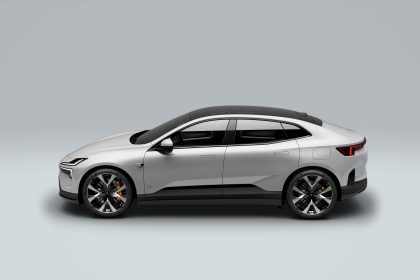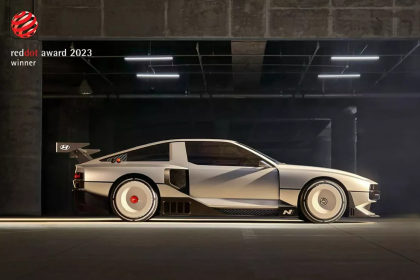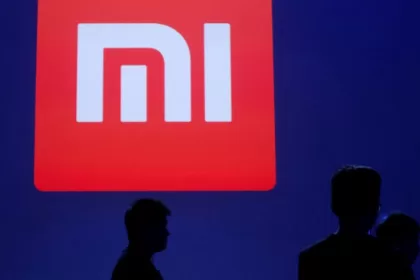Hyundai Motor Company hosted its highly anticipated ‘2023 CEO Investor Day’ in Seoul today, unveiling its visionary mid- to long-term business strategies and financial plans. With the aim of actively leveraging its knowledge and heritage of innovation from internal combustion engine (ICE) vehicles, the company is committed to a successful transition to the electrification era through its newly introduced strategy, ‘Hyundai Motor Way.’
The company will implement this strategy and accelerate its transition toward becoming a smart mobility solution provider by securing a large-scale investment of KRW 109.4 trillion over the next 10 years. Furthermore, in order to secure leadership in the future mobility industry, it has decided to focus on future businesses, such as autonomous driving, hydrogen, robotics and advanced air mobility (AAM).
At the forum, Jaehoon Chang, President and CEO, Gang Hyun Seo, Executive Vice President, CFO and Head of Finance & Accounting Division, Heung-soo Kim, Executive Vice President and Head of the Global Strategy Office (GSO), and Chang Hwan Kim, Senior Vice President and Head of the Battery Development Center, as well as other executives presented the roadmap to shareholders, investors and other stakeholders.
Hyundai Motor is leveraging its heritage of innovation and knowledge accumulated over a long period of time as a traditional vehicle manufacturer amidst seismic change in the industry with competition intensifying in a bid for leadership in the electric vehicle (EV) market. The company announced that it will achieve a successful transition to electrification by efficiently and effectively leveraging its long experience in vehicle production and sales.
In particular, the company has decided to initiate its ‘Hyundai Motor Way’ strategy by securing KRW 109.4 trillion for its next decade investment, including KRW 35.8 trillion for electrification. The company aims for 2 million units in annual EV sales by 2030.
The key parts of the strategy include introducing a next-generation modular architecture for EVs, strengthening EV production capacity, battery development capabilities and future businesses.
“The value of cultivating human-centered innovation by further developing technology inherited from the past is the distinct heritage that a company with a rich legacy can provide,” said President and CEO Chang. “As it originated from Pony, the IONIQ 5 N—a high-performance EV scheduled for unveiling in July—will embrace and carry forward the enduring heritage of Hyundai Motor Company.”
New EV platform to enable an efficient and effective path to electrification dominance
President and CEO Chang laid out the ‘Hyundai Motor Way’ roadmap for success in the electrification era, emphasizing the company’s advantages as a legacy automaker and its proactive pursuit of leadership in EVs.
Chang explained how the company’s second-generation dedicated EV platform, under the new Integrated Modular Architecture (IMA), will replace its Electric-Global Modular Platform (E-GMP) going forward. The next-generation platform will be used on 13 new dedicated EV models from Hyundai Motor Group’s automotive brands Hyundai, Kia and Genesis through 2030. With IMA, the company expects to standardize modules and parts between the models to further expand economies of scale and significantly reduce EV development complexity and costs.
The vehicle development system implemented by the IMA represents a significant advancement compared to the current system, enabling maximum cost reduction through economies of scale. In the existing system, auto parts can only be shared among vehicles that share the same platform. However, with the IMA development system, over 80 common modules can be utilized across different segments, irrespective of vehicle type, allowing for versatile combinations. This breakthrough allows for greater flexibility and efficiency in the development process, paving the way for significant cost savings.
In the second-generation platform, the scope of vehicle development extends beyond the mid-sized SUVs covered by the current E-GMP system. It encompasses nearly all vehicle classes, ranging from small and large SUVs to pickup trucks, along with the flagship models of the Genesis brand.
Hyundai Motor plans to apply a range of battery solutions, including next-generation NCM batteries and LFP batteries, for the second-generation platform. The company is also exploring different form factors of batteries to enhance versatility. To further extend the driving range, Hyundai Motor intends to implement cutting-edge technology that enables battery charging and discharging while driving, utilizing an independent power bank. In addition, the integration of an AI-based battery management system will ensure real-time monitoring and diagnosis of battery conditions, ensuring enhanced safety by preventing thermal runaway.
In addition to these hardware improvements, the modular architectures and next-generation platform will enable software architecture compatibility in support of Hyundai Motor’s software-defined vehicle (SDV) strategy. The company aims to build an app ecosystem through the application of an open operating system and controller integration, including Level 3 and higher autonomous driving capabilities, high-performance semiconductors and over-the-air (OTA) update advancements.
Production Innovation: Reinforcing the capacity and efficiency of manufacturing
In expanding production for the electrification transition, Hyundai Motor is not only building new factories dedicated to EVs but it is also promoting a rapid and efficient demand response strategy by utilizing its existing ICE plants.
The proportion of global EV production is set to increase from 8 percent this year to 34 percent in 2030. The company plans to expand production by region through a two-track approach of line conversion in ICE factories and new dedicated EV plant establishment.
Since the demand for ICE vehicles remains high, the company is currently producing EVs on mixed production lines as it is more cost efficient than building more EV-dedicated factories. By utilizing existing lines, construction time is much shorter than building new plants and can be ramped up quickly to meet EV demand.
The company is currently producing EVs in this way at its plants in the U.S., South Korea, the Czech Republic, and India, it plans to convert additional lines as market demand dictates.
In addition, the company is building dedicated EV factories in regions that are expected to grow significantly in the future and require localization. The new factories will be equipped with new ‘smart factory’ technologies to maximize the efficiency of EV production.
Hyundai’s first dedicated EV factory, the Hyundai Motor Group Metaplant America (HMGMA) in Georgia, U.S., is under construction with a targeted start-up date in the second half of 2024, with an annual production capacity of 300,000 vehicles to meet the demand for EVs in North America. Meanwhile, an EV-dedicated factory in Korea, which is being established with an investment of about KRW 2 trillion, aims to start mass production in 2025, responding not only to domestic demand for EVs but also to the rapidly growing global market.
To maximize production efficiency at these dedicated EV factories, Hyundai Motor Group Innovation Center in Singapore (HMGICS), which is scheduled to be operational this year, will be equipped with ‘smart factory’ technology. HMGICS will demonstrate various new manufacturing technologies for enhancement of quality, logistics and management automation and others.
The company will apply the smart manufacturing platform to factories dedicated to EVs. HMGMA will adopt more than 75 percent of the new technologies demonstrated at HMGICS. Compared to Hyundai Motor’s plant in Montgomery, Alabama, U.S., the company expects to significantly improve logistics and assembly automation rates and the number of vehicles that can be produced.
In the U.S. market, which is rapidly transitioning to EVs, Hyundai Motor plans to increase the localization rate by increasing the proportion to 75 percent from the current 0.7 percent. In Europe, it will also promote electrification in line with market conditions by increasing the proportion to 54 percent from the current 7 percent. The company plans to increase the proportion of EV production in other regions to 16 percent from the current 2 percent, in line with market demands.
With global EV demand growing faster than market forecasts, Hyundai Motor is raising its 2030 sales target from 1.87 million units to 2 million units. The company has also raised sales targets for major regions and is preparing to flexibly adjust its sales targets according to market demand.
Hyundai Motor is targeting more than 10 percent profitability for EVs in 2030 based on the EV development system implemented by the IMA, high-margin derivative model operation, cost reduction through production facility operations strategy and new revenue generation through SDVs.
Battery ability: Strengthening development capabilities and procuring resources
Given the importance of EVs to the Hyundai Motor Way strategy, Chang Hwan Kim, SVP and Head of the Battery Development Center, detailed the company’s advancing development capabilities to continuously improve battery performance and strengthen price competitiveness.
For its battery-wise competitiveness, Hyundai Motor plans to invest KRW 9.5 trillion over the next 10 years. The company aims to enhance internal capabilities for battery development, diversify external collaboration and develop next-generation batteries.
Hyundai Motor has established a specialized battery development organization within its Namyang R&D Center, focused on battery system and cell design, battery safety reliability and performance development and next-generation batteries. The company has formed a dedicated organization for each function required for battery development and is securing/training specialized personnel. It is also improving battery performance, developing advanced technologies for next-generation batteries and building infrastructure.
In addition, the company is expanding external collaborations with specialized companies, startups and universities. It is also establishing JVs with battery companies to ensure stable supply and to secure optimized battery performance for its EVs. Joint research and equity investment in startups to accelerate the development of next-generation batteries is also underway.
For solid-state batteries, Hyundai Motor is collaborating with companies, such as Solid Power, to secure elements and manufacturing process technologies and collaborating with SES to develop lithium metal batteries. In addition, the company is internalizing next-generation battery element technology and expanding its talent pool.
Hyundai Motor has completed the construction of the Battery Joint Research Center at Seoul National University, which is scheduled to open in July this year. The dedicated research facility is equipped with the highest specification laboratory equipment at the same level as its own to improve the quality and completeness of its research.
The company is also utilizing these internal and external resources for material sourcing, stabilizing material supply and demand by recycling raw materials, battery cell design and next-generation battery development plans. It is focusing on lithium and nickel, which are essential for electrification, and entering into partnerships to secure these materials. It continues to consult not only with material suppliers but also with domestic and overseas organizations to strengthen the battery material sector.
In addition, to protect the environment and secure sustainable raw materials in the mid- to long-term, Hyundai Motor is safely recovering batteries through collaboration with the Group’s companies. Secure recycling technology to reutilize recycled materials for battery manufacturing will enable the sustainable lifecycle of batteries.
Considering the special properties of automobiles, the company has continuously strengthened its battery design capabilities to achieve a high level of performance. As a result, it has been able to successfully launch EVs with competitive driving ranges and the fastest charging speeds. The hybrid model that will be released this year will be equipped with batteries designed by Hyundai Motor and in collaboration with SK On.
Going forward, the company will continue to ensure superior performance and safety of its batteries and increase cost competitiveness. It is preparing various battery cells optimized for each vehicle type in consideration of the market and customer needs. It plans to introduce competitive lithium-iron-phosphate (LFP) batteries with increased energy density and improved low-temperature efficiency for the first time around 2025. The number of models to be equipped with LFP batteries will be expanded for emerging markets first.
Hyundai Motor is also advancing its battery management capabilities to maximize the performance of EVs so that batteries can operate at high efficiency and safety under optimal conditions. In addition, the company has further advanced the proactive diagnostic function of the battery management system to prevent safety issues through real-time battery condition monitoring.
To realize high energy density and improve battery safety, the company is focusing on the development of next-generation batteries, including lithium metal batteries and solid-state batteries, in the mid- to long-term. Next-generation batteries require the development of not only battery materials and cells, but also equipment and manufacturing technologies for mass production must be developed in parallel.
In order to secure technologies in all areas, the company is conducting multi-faceted collaborations with specialized companies. The aforementioned Hyundai Motor Group-Seoul National University Joint R&D Center is conducting research on next-generation batteries. It is also strengthening internal capabilities to accelerate the development of next-generation batteries by building a next-generation battery research center in Uiwang, Gyeonggi-do, scheduled for completion in 2024.
The company is even considering production verification through a small-scale pilot line. Through this, it will verify the entire value chain technology from securing battery materials, cell design and production to demonstrate the production of next-generation batteries.
The next-generation battery developed in this way will be utilized not only for EVs but also as a power source for future mobility, such as AAM and robotics. It will make a great contribution to increasing synergies between future businesses as a mobility company. By securing the entire battery value chain technology, Hyundai Motor will realize optimized batteries for vehicles, cost competitiveness and consolidate its leadership in the EV era.
Advances in autonomous driving, robotics and AAM to build on heritage of innovation
With Hyundai Motor transforming into a smart mobility solution provider, Heung-soo Kim, EVP and Head of the Global Strategy Office (GSO), provided details of the company’s progress in developing future mobility technologies to provide freedom of movement to everyone.
In the field of autonomous driving, an IONIQ 5-based driverless robotaxi business operated by Hyundai Motor Group and Aptiv’s joint venture, Motional, is set to launch in Las Vegas at the end of this year. The Group plans to expand the service globally and lead the autonomous driving market. To this end, Motional is conducting pilot services with Uber and Lyft, the dominant operators in the ride-hailing sector. In particular, it has agreed to cooperate with Uber on an autonomous robotaxi business across the U.S. over the next 10 years.
For the successful commercialization of Motional, the Group will not only develop the vehicle but also the sales network, infrastructure and after-sales service. It will continue to actively engage in manpower exchanges and business collaboration with Motional to secure industry-leading technology and lead the global autonomous driving market.
Hyundai Motor also wants to provide new mobility customer experiences through software-based SDV development, To this end, the company is actively enhancing its software development capabilities by utilizing Hyundai-backed 42dot as a base for its Global Software Center. Since its acquisition in August 2022, 42dot has been playing an integral role in internalizing SDV technology.
42dot will start developing its own software platform called Titan by 2024 and validate the platform by 2026 in order to launch an autonomous driving purpose-built vehicle (PBV) business after 2027 with the aim of turning a profit after 2028, according to a phased technology development roadmap.
With 42dot’s software capabilities and autonomous driving PBV solutions, the Group will continue to develop new businesses based on software innovation in the mobility/logistics sector.
Having acquired Boston Dynamics in 2021 to secure robotics leadership, Hyundai Motor is proceeding with the internalization of core hardware and software through its Robotics Lab. The industrial inspection robot Spot, intelligence logistics robot Stretch and multi-purpose humanoid robot Atlas will continue to strengthen Hyundai Motor’s future competitiveness.
In addition, the Robotics Lab is developing cognitive judgment technology, natural language, spatial navigation and movement, and differentiated mobile platform technology. It is connecting services that create new value for customers through a robot management system, motion-sensing wearable robots MEX, VEX and CEX, and multi-purpose mobile platforms MobED and DAL-e.
The future robotics business will utilize the Group’s existing capabilities in R&D, purchasing, manufacturing and sales, with Boston Dynamics and Robotics Lab as the main players in this expanding business area.
Advanced air mobility (AAM) will be a key technology in the development of future cities. Hyundai Motor Group established Supernal, LLC in Washington, D.C. in 2021 and is developing a full-scale technology model in the near, mid- to long-term, planning pilot-ridden flight tests and securing the infrastructure for airframe manufacturing.
In addition, Hyundai Motor is working with Microsoft, aircraft engine manufacturer Rolls-Royce, KT, Hyundai Engineering and Construction as well as other Korean and foreign partners in the telecommunications and construction sectors to expand into various related businesses. Through these efforts, the company expects to lead the way in building the entire AAM ecosystem.
Mobilizing to harness the green energy of hydrogen
Hyundai Motor Group is realizing the utilization of hydrogen energy as it is the global leader in commercializing hydrogen fuel cell electric vehicles. Going forward, it aims to secure a new growth axis by building a hydrogen energy ecosystem at the Group level.
The Group plans to build a ‘Mobilize Energy’ toolbox for the production of resource-circulating hydrogen and manufacturing of green steel in the energy and resources sector, and decarbonization of heat and power sources for business sites through hydrogen. In the utilization sector, it will build hydrogen mobility, fuel cells and accompanying infrastructure, and eco-friendly logistics systems using hydrogen.
The company plans to realize carbon neutrality through the ‘Mobilize Energy’ toolbox, with clean hydrogen, including biogas and waste plastic-based hydrogen, powering its EV production facilities and all the logistics, power generation and infrastructure surrounding them.
By expanding the supply of hydrogen vehicles, the Group will also improve the logistics system at seaports and airports. In addition, as next-generation hydrogen fuel cell technology advances, fuel cell systems will be used to power data centers and other applications.
To achieve this vision, the Group will expand the hydrogen value chain based on cooperation among Group affiliates in the global hydrogen market, which is expected to reach KRW 126 trillion in 2030 and KRW 250 trillion in 2050.
The Group plans to present more on its hydrogen business vision and strategy at 2024 CES. It will continue to share the status of other future technologies announced by the GSO with investors.
Financial highlights: Turning profits into dividends and investments for the future
CFO Gang Hyun Seo provided a report on Hyundai Motor’s financial performance and goals. In recent years, the company has established a virtuous cycle of increasing investment and shareholder return driven by stable earnings from its sustainable businesses.
Hyundai plans to invest a total of KRW 109.4 trillion from 2023 to 2032, with an average annual investment of around KRW 11 trillion. The investment includes KRW 47.4 trillion for R&D, KRW 47.1 trillion for CAPEX, and KRW 14.9 trillion for strategic investments.
In 2024-25, when investments will focus on electrification, the annual investment may increase to more than KRW 12 trillion.
In terms of investment for electrification, the annual spending has increased by an average of KRW 1.4 trillion per year to KRW 35.8 trillion over the next 10 years since last year’s announcement that a total of KRW 19.4 trillion would be invested in electrification.
Furthermore, the company is targeting over 10 percent profitability for EVs in 2030 through expanded EV sales, the integrated modular architecture, optimized production and other profitable businesses.
The next three years will be dominated by a 50/50 funding split between ICE vehicles and future technologies. From 2026 onward, when EV volume expansion and the application of next-generation EV platforms are in full swing, investment in ICE will gradually decrease. And in Phase 3, when the sum of revenues through EV and software will be expected to exceed ICE, spending on electrification and future mobility will overtake ICE.
As for earnings, Hyundai Motor posted an operating profit of KRW 9.8 trillion and operating margin of 6.9 percent in 2022, compared to KRW 2.4 trillion in operating profit and 2.3 percent operating margin in 2020, and built on that momentum with an operating margin of 9.5 percent in Q1 2023.
The company spreads its mid- to long-term capital management across three phases to balance investment and shareholder return and aims to improve the visibility of its future business investments to enhance the market’s confidence in the direction it is taking.
In line with this improvement in profitability, Hyundai Motor has increased its dividend to shareholders during the past two years from KRW 3,000 in 2020 to KRW 7,000 in 2022. The company also has expanded its dividend from twice a year to quarterly and set a dividend payout ratio of 25 percent as a lower bound to increase the visibility of its return to shareholders. It also expects to be able to propose a new dividend policy based on further improvements in profitability. Treasury shares will be retired at a rate of 1 percent per year for the next three years. It will continue to prioritize management activities that enhance shareholder value.
Crisis to opportunities: Proactively respond to potential risks
Hyundai Motor plans to turn crises into opportunities by actively responding to the risks it faces in the process of promoting its future business.
For its business in China, Hyundai Motor is seeking a turnaround by improving its brand image and profitability through optimizing production capabilities and efficiently managing regional lineups.
Following the sale of its first plant in China in 2021 and the shutdown of its fifth plant in China in 2022, Hyundai Motor plans to halt production at another plant this year. The two factories that have been suspended will be sold, and the remaining two factories will optimize production while expanding exports to emerging markets.
The lineup in China will be shortened from the current 13 models to eight models and will focus on SUVs and Genesis luxury brand models. The company plans to actively promote the high-performance N brand, which recently announced its entry into the Chinese market.
Hyundai Motor has decided to actively respond not only to local business in China, but also to the intensifying market competition following the global expansion of Chinese automakers. The company plans to effectively overcome the risks associated with Chinese competitors that are entering the global market by strengthening its differentiation in brands, sales and services — areas where Hyundai Motor has an advantage.
For global supply chain issues, Hyundai Motor has decided to respond by expanding local production of EVs and localizing parts. In order to stabilize the supply and demand of batteries, the company is promoting the expansion of joint ventures (JVs) by region. Its Indonesian battery joint venture is scheduled to go into operation in 2024, and the two U.S. battery JVs announced this year will go into operation in 2025.
The company is also reviewing the formation of a battery JV in Europe and plans to consider forming a new JV or expanding existing JVs in regions with high demand for EVs. Hyundai Motor Group also plans to stably procure more than 70 percent of battery demand through various battery JVs starting from 2028.


